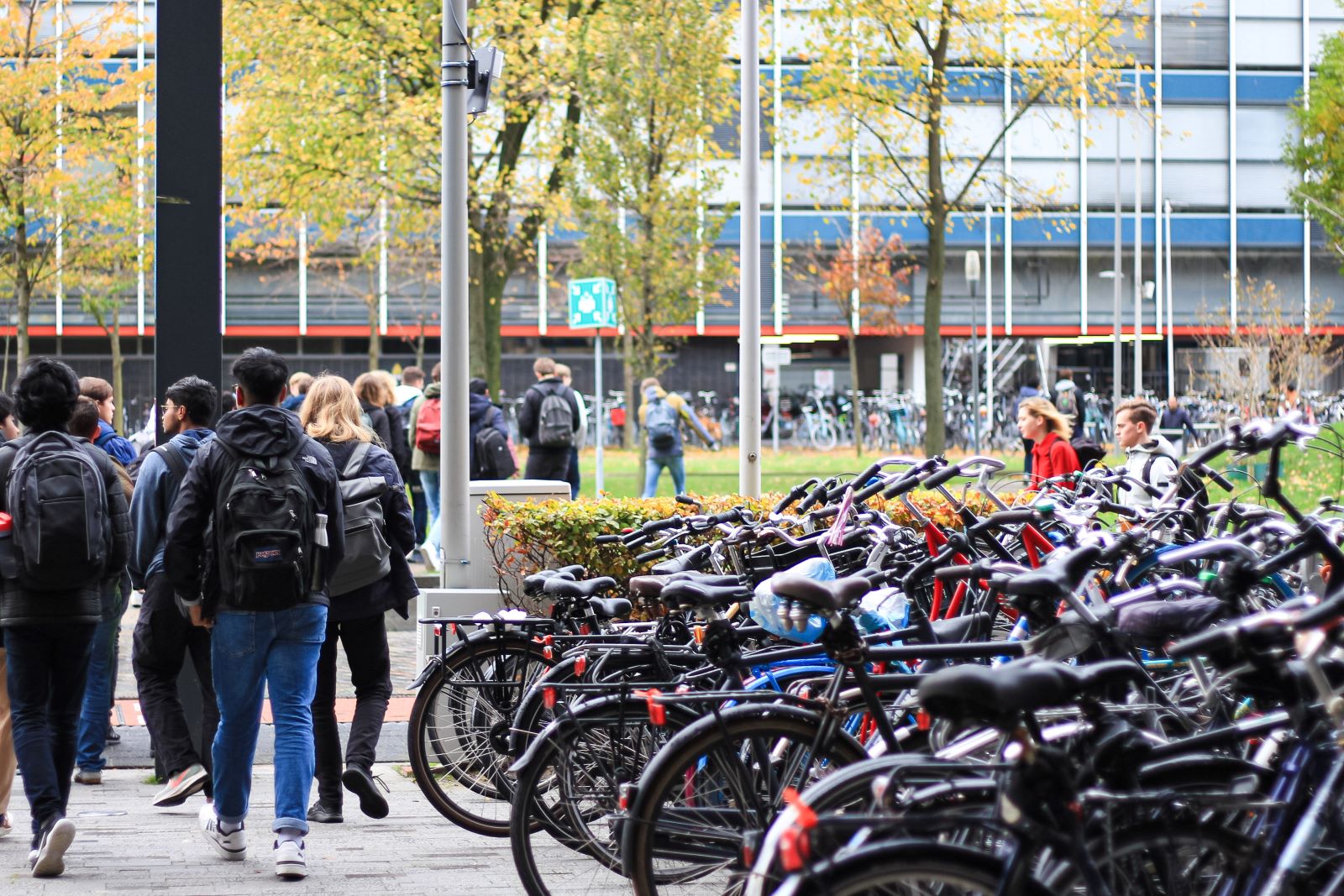Quality of education, workload, housing: students and staff have plenty of questions about TU Delft’s growth plans. This transpired during a meeting with the Executive Board.
TU Delft plans to distribute students across several campuses in the future. (Foto: Justyna Botor)
In September, the Executive Board revealed plans to grow to 40,000 students (from the current 28,000) divided across different campuses in Delft, Rotterdam and The Hague. The plans are not definite. The decision will officially be taken after internal and external consultation rounds. The rounds should be completed by the end of November so that the Executive Board can present the plans to the Ministry of Education in The Hague in mid-December.
While the Works Council did praise the growth strategy, its members had a lot of questions at the joint meeting last Thursday. Members of the Student Council too posed the necessary questions at the meeting. The two representative bodies had jointly prepared the questions and divided them among themselves.
Argument
The Works Council asked about workload, staff recruitment in a tight labour market, and the relationship of the growth plans in comparison with other universities such as the TU Eindhoven. The Student Council asked questions about the consequences of the plans on the quality of education, student accommodation, and TU Delft’s ‘signature’ in both student life and university education. And, asked Oras Student Council member Bart van Koeveringe, “Is the growth strategy not mostly an argument to obtain more financial resources from The Hague?”
Rector Magnificus Tim van der Hagen categorically denied this. “We do not tell our staff that though they are already working hard, that they should do another 40% on top of it so that we get more money from the Government.” On the workload, Van der Hagen said that the strategy will not go ahead “if we do not find enough staff to handle the growth in student numbers. It is not the intention to increase the workload.”
Carefully chosen words
Executive Board members Van der Hagen, Rob Mudde and Marien van der Meer chose their words carefully and did their best to emphasise that the intention to grow to 40,000 students is not set in stone. They regularly started their answers with “if the plans go ahead”. There was less emphasis on this in previous meetings with the Student Council and Works Council.
‘What type of engineers will be needed?’
Not all the questions got a clear answer. In one example, neither the Works Council nor the Student Council find the advisory report’s statement that there will be a great need for university educated engineers in the future well argued. Yet, the advisory report underpins the growth strategy. “What type of engineers will be needed?” asked Oras Council member Marten Leenders. Van der Hagen said that the Executive Board had debated when to announce the growth strategy. “Should you do it when there is a solid well-founded and worked out plan? If so, everyone would have said that they had wanted to think about it and discuss it. If you announce it at the point that you still barely know what it will entail, everyone would have said that they do not even understand the question.”
Architect
The Rector Magnificus calls the point at which it was announced – in September this year – “very early”. “We ourselves had thousands of questions, but it is about the mindset,” says Van der Hagen. “That the growth does not just happen as is now the case, but that you are the architect of the growth. So I cannot give you an answer. The important question now is whether we want to think about it at all.”
Despite the meeting running 15 minutes over schedule, there was not enough time to answer all the questions. Works Council Chair Menno Blaauw announced that he would submit the questions that were still pending to the Executive Board in writing.
- Rector Magnificus Tim van der Hagen kicked off November’s TU Delft talk show with comments about the growth strategy. Read this article for viewers’ responses.
- Some of the teachers are critical about the growth plans. Read their suggestions.
- Also read this interview with Executive Board Chair Tim van der Hagen about the plans.
- TU Delft could have opted for other growth scenarios. Read them here.
- Delft municipal council members would have preferred hearing about the growth plans from the Executive Board than from the media. Their message for Van der Hagen? “Talk to us.”
- The TU Delft student associations would also like to contribute to the discussion and brainstorming. “How can we ensure that there will be enough facilities for the current and new students?”
Do you have a question or comment about this article?
a.m.debruijn@tudelft.nl


Comments are closed.